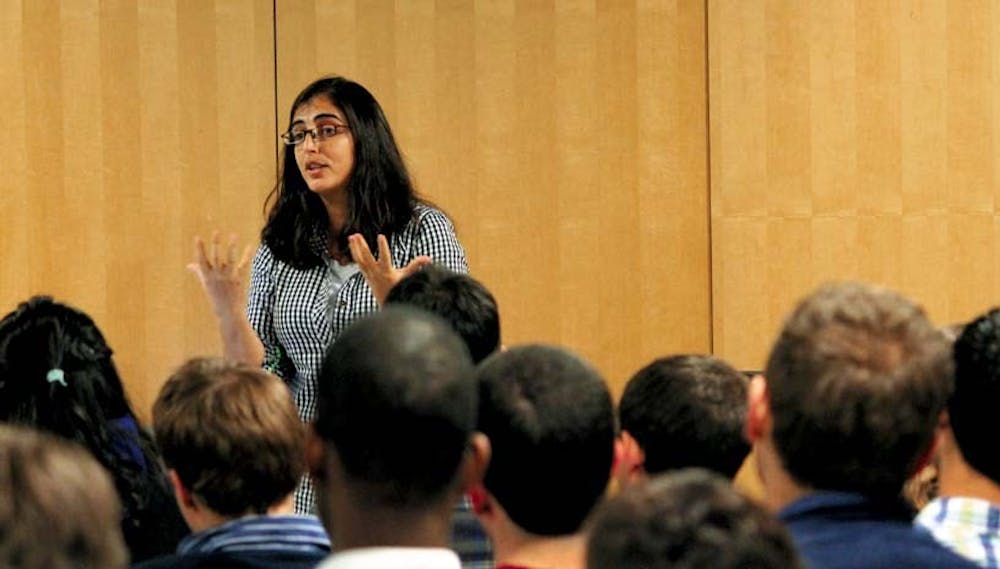American news pundits rarely discuss queer politics and Israel-Palestine relations in the same breath, but Palestinian queer activist Haneen Maikey would argue that one cannot be separated from the other.
Maikey spoke at the LGBT Center last night for a discussion event co-sponsored by a host of Penn organizations, including Penn for Palestine, the Sexuality and Women’s Studies Department, the English Department, the Queer Student Alliance, Penn for Liberty and Queer People of Color.
“We are not a gay rights organization,” Maikey said in reference to alQaws, of which she is a co-founder and director. Rather, she emphasized the focus of her organization as promoting sexual and gender diversity in Palestine.
“Only at the age of 18 [did] I discover I was Palestinian,” she recalled. Maikey believes that inherent in the struggle of queer identity is that of Palestinian identity. “We, [the gay community], are not saying our oppression is unique.” For this reason, she and her organization find it important not to draw a barrier between these separate struggle in order to avoid “internal oppression.”
Related: Penn for Palestine hosts discussion of ‘Shattered Hopes’
Maikey said alQaws operates under a policy of “anti-normalization,” which opposes a notion employed by many liberal groups in the Middle East whereby activists attempt to find common ground between Israeli and Palestinian interests. She described her aversion to this notion as “been there, done that.”
alQaws had worked with other organizations in Israel but found them to have different priorities in their approach to queer politics. Maikey made clear that her group’s mission is not to reform, but to create an independent Palestinian identity. “It is not about gay rights in Israel as it is not about homophobia in Palestine,” she said.
Maikey added that the distinction between the culture of homosexuality in Palestine and in Western cultures complicates our understanding of sexual identity in Palestine. “How can we [Palestinians] define our struggle as a homophobia struggle when our society doesn’t really talk about homophobia?” she asked.
Growing up, Maikey recalled, she never even said hello to her father when they crossed paths — so it seemed to her almost out of the question to bring up her sexual identity.
Related: LGBT Center and religious community discuss sexuality and religion
College senior Travis Mager said he was drawn to this event by its unusual dichotomy of issues.
“I am interested in the intersectional [nature] that arises when you bring together discussions of gender or sexuality with something else,” he added. “She did a wonderful job of addressing both of these, regardless of my opinions on her views.”
College senior and Penn for Palestine Co-president Sarah Shihadah honed in on Maikey’s main theme — that “it’s important for us to realize that no oppression is isolated. As long as we say [we] stand for human rights and justice, we must be committed to struggles for all forms of liberation.”



